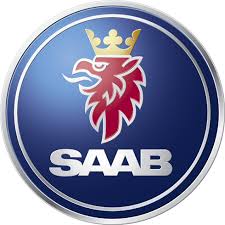9000 CSE V6-2962cc 3.0L DOHC (B308) (1996)
/Page-874001.png)
Throttle Position Sensor: Description and Operation
The position sensor consists of a potentiometer connected to the throttle spindle.
The sensor is supplied with 5 V from control module pin 53 and grounded via control module pin 71. The voltage from the sensor, which is proportional
to the throttle opening, is applied to control module pin 44.
The voltage is about 0.5 V at idling speed and about 4.5 V at wide open throttle. The control module uses the voltage from the sensor to identify idling
speed, partially open throttle and wide open throttle. The control module uses a special ignition control matrix or map to adjust idling speed.
The closed loop is disconnected at wide open throttle. A richer mixture is used during acceleration and a weaker mixture during deceleration.
Should the sensor fail to work or in the event of a break in the circuit (no continuity), the control module will use the engine load calculated with the
mass air flow sensor as a substitute value.
Throttle Position Signal
The control module sends out a throttle position signal on pin 82.
This is a 100 Hz PWM signal with a pulse ratio of 9% at idling speed (about 1.2 V) and about 90% at wide open throttle (about 12 V).
With the ignition switch in the ON position and the engine stationary, and when the starter motor is turning the engine over, the pulse ratio is 2-7% which
in that case represents the coolant temperature.
The throttle position signal is used by the TCS control module. The temperature signal is used only as a test signal by the TCS control module.
